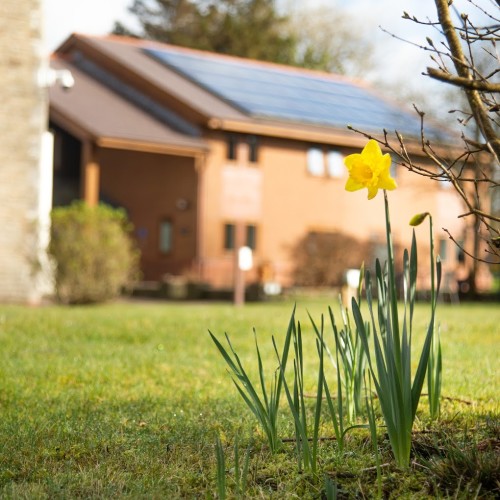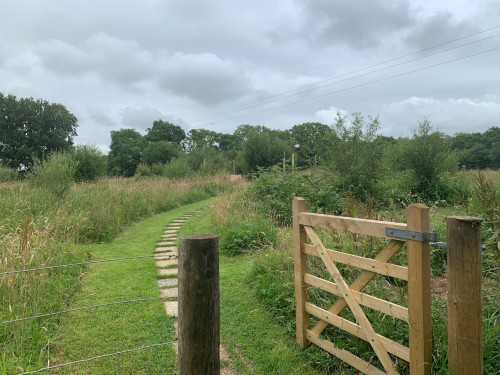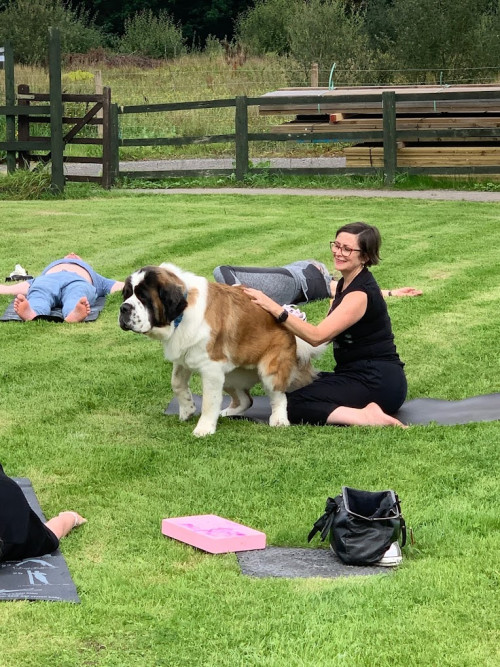





Brynawel
Treatment Focus
This center treats substance use disorders and co-occurring mental health conditions. Your treatment plan addresses each condition at once with personalized, compassionate care for comprehensive healing.
Primary Level of Care
Offering intensive care with 24/7 monitoring, residential treatment is typically 30 days and can cover multiple levels of care. Length can range from 14 to 90 days typically.
This provider hasn't verified their profile's information. Are you the owner of this center? Claim your listing to better manage your presence on Recovery.com.
Treatment Focus
This center treats substance use disorders and co-occurring mental health conditions. Your treatment plan addresses each condition at once with personalized, compassionate care for comprehensive healing.
Primary Level of Care
Offering intensive care with 24/7 monitoring, residential treatment is typically 30 days and can cover multiple levels of care. Length can range from 14 to 90 days typically.
Private Pay
You pay directly for treatment out of pocket. This approach can offer enhanced privacy and flexibility, without involving insurance. Exact costs vary based on program and length of stay. Contact the center for specific details.
Brynawel
Brynawel
About Brynawel
Brynawel Rehab, the leading residential centre for addiction treatment in Wales, is an inpatient programme that treats adult men and women struggling with addiction to drugs or alcohol, as well as those with co-occurring disorders. They offer personalised treatment plans to meet each client’s individual needs with evidence-based, experiential, and alternative therapies.
Medically supervised detox services are available for clients who have a physical dependency to alcohol. Medical staff is available to monitor patients to ensure a safe and comfortable detox process, using medication-assisted treatment as necessary. Clients in residential treatment are offered a safe and healing environment to work toward rebuilding their lives in sobriety. Their structured programme consists of evidence-based treatment such as cognitive behavioral therapy (CBT) through group and individual therapy sessions.
Their therapeutic group therapy programme centres on establishing connections between peers, focusing on developing the attributes needed to foster personal and emotional growth and strengthen relationships. Patients are assigned an experienced and compassionate therapist, all of which are members of the British Association of Counselling and Psychotherapy. Clients will work through 1-on-1 sessions to gain the skills and ability to reach their goals in sobriety.
Experiential Therapies
Clients at Brynawel can participate in a number of experiential therapies as part of their drug and alcohol addiction program. Experiential group therapy sessions take place on campus and off grounds, and involve engaging in a range of physical, mental, and emotional challenges that promote trust, communication, and self-confidence. Clients may participate in surf therapy and other water activities, as well as mindfulness sessions that take place during beach walks. Alternative therapies such as yoga, art, meditation, and mindfulness sessions take place weekly. Clients are also offered canine therapy, with certified therapy dogs participating in group and 1-on-1 therapy sessions. Clients can pet and interact with the dogs, as studies show these interactions help reduce stress and anxiety. Patients may also engage in talk therapy while on walks with therapy dogs. A horticultural therapist leads garden therapy, the process of improving wellbeing through plants. Outdoor garden space offers a calm and safe environment to plant, grow, and nurture plants, offering relaxation and confidence building.
Family Programme
The family programme at Brynawel consists of multiple family therapy sessions, dependent on the clients needs. The client’s therapist works with the family to better understand their loved one’s addiction, improve communication, work through past trauma, and set and maintain healthy boundaries.
They offer aftercare services for both patients and their families, as well as a volunteer programme where alumni are able to return as volunteer workers. Aftercare home support, regular check-in, and crisis support if needed. Families can continue with 1-on-1 support as well as a monthly meeting as part of their aftercare services.

Center Overview
Treatment Focus
This center treats substance use disorders and co-occurring mental health conditions. Your treatment plan addresses each condition at once with personalized, compassionate care for comprehensive healing.
Pricing and Program Length
Estimated Center Costs
Center pricing can vary based on program and length of stay. Contact the center for more information. Recovery.com strives for price transparency so you can make an informed decision.
Levels of Care






Your Care Options
Specializations
Family Therapy
Family therapy addresses group dynamics within a family system, with a focus on improving communication and interrupting unhealthy relationship patterns.
Canine Therapy
Friendly dogs provide a pleasant therapeutic experience, helping patients who've experienced trauma or separations build social and communication skills.
Alcohol
Using alcohol as a coping mechanism, or drinking excessively throughout the week, signals an alcohol use disorder.
Who We Treat
Men and Women
Men and women attend treatment for addiction in a co-ed setting, going to therapy groups together to share experiences, struggles, and successes.
Approaches
Personalized Treatment
The specific needs, histories, and conditions of individual patients receive personalized, highly relevant care throughout their recovery journey.
Experiential
Expressive tools and therapies help patients process past situations, learn more about themselves, and find healing through action.
Holistic
A non-medicinal, wellness-focused approach that aims to align the mind, body, and spirit for deep and lasting healing.
Evidence-Based
A combination of scientifically rooted therapies and treatments make up evidence-based care, defined by their measured and proven results.
Therapies
1-on-1 Counseling
Patient and therapist meet 1-on-1 to work through difficult emotions and behavioral challenges in a personal, private setting.
Family Therapy
Family therapy addresses group dynamics within a family system, with a focus on improving communication and interrupting unhealthy relationship patterns.
Motivational Interviewing and Enhancement Therapy (MET)
This approach is based on idea that motivation to change comes from within. Providers use a conversational framework that may help you commit to recovery.
Art Therapy
Visual art invites patients to examine the emotions within their work, focusing on the process of creativity and its gentle therapeutic power.
Meditation & Mindfulness
A practiced state of mind that brings patients to the present. It allows them to become fully aware of themselves, their feelings, and the present moment.
Relapse Prevention Counseling
Relapse prevention counselors teach patients to recognize the signs of relapse and reduce their risk.
Conditions We Treat
Anxiety
Anxiety is a common mental health condition that can include excessive worry, panic attacks, physical tension, and increased blood pressure.
Depression
Symptoms of depression may include fatigue, a sense of numbness, and loss of interest in activities. This condition can range from mild to severe.
Trauma
Some traumatic events are so disturbing that they cause long-term mental health problems. Those ongoing issues can also be referred to as "trauma."
Substances We Treat
Cocaine
Cocaine is a stimulant with euphoric effects. Agitation, muscle ticks, psychosis, and heart issues are common symptoms of cocaine abuse.
Prescription Drugs
It's possible to abuse any drug, even prescribed ones. If you crave a medication, or regularly take it more than directed, you may have an addiction.
Benzodiazepines
Benzodiazepines are prescribed to treat anxiety and sleep issues. They are highly habit forming, and their abuse can cause mood changes and poor judgement.
Co-Occurring Disorders
A person with multiple mental health diagnoses, such as addiction and depression, has co-occurring disorders also called dual diagnosis.
Drug Addiction
Drug addiction is the excessive and repetitive use of substances, despite harmful consequences to a person's life, health, and relationships.
Heroin
Heroin is a highly addictive and illegal opioid. It can cause insomnia, collapsed veins, heart issues, and additional mental health issues.
Methamphetamine
Methamphetamine, or meth, increases energy, agitation, and paranoia. Long-term use can result in severe physical and mental health issues.
Opioids
Opioids produce pain-relief and euphoria, which can lead to addiction. This class of drugs includes prescribed medication and the illegal drug heroin.
Languages
Aftercare
Care Designed for Your Needs
Personal Amenities
Amenities
Special Considerations
Center Pets
Addiction and mental health facilities with pets allow patients to interact with friendly dogs, cats, horses, and in some cases, even dolphins.
Activities
Yoga
Yoga is both a physical and spiritual practice. It includes a flow of movement, breathing techniques, and meditation.





